New Bachelor in Immersive Technologies combines technology, psychology and design
It’s like magic, only better: The new BSc in Immersive Technologies is the only one of its kind in Switzerland. It combines technology, psychology and design with creative freedom. Head of program Nathaly Tschanz explains what it takes to blend the real and the virtual realms and why this program is particularly appealing to members of Gen Z.
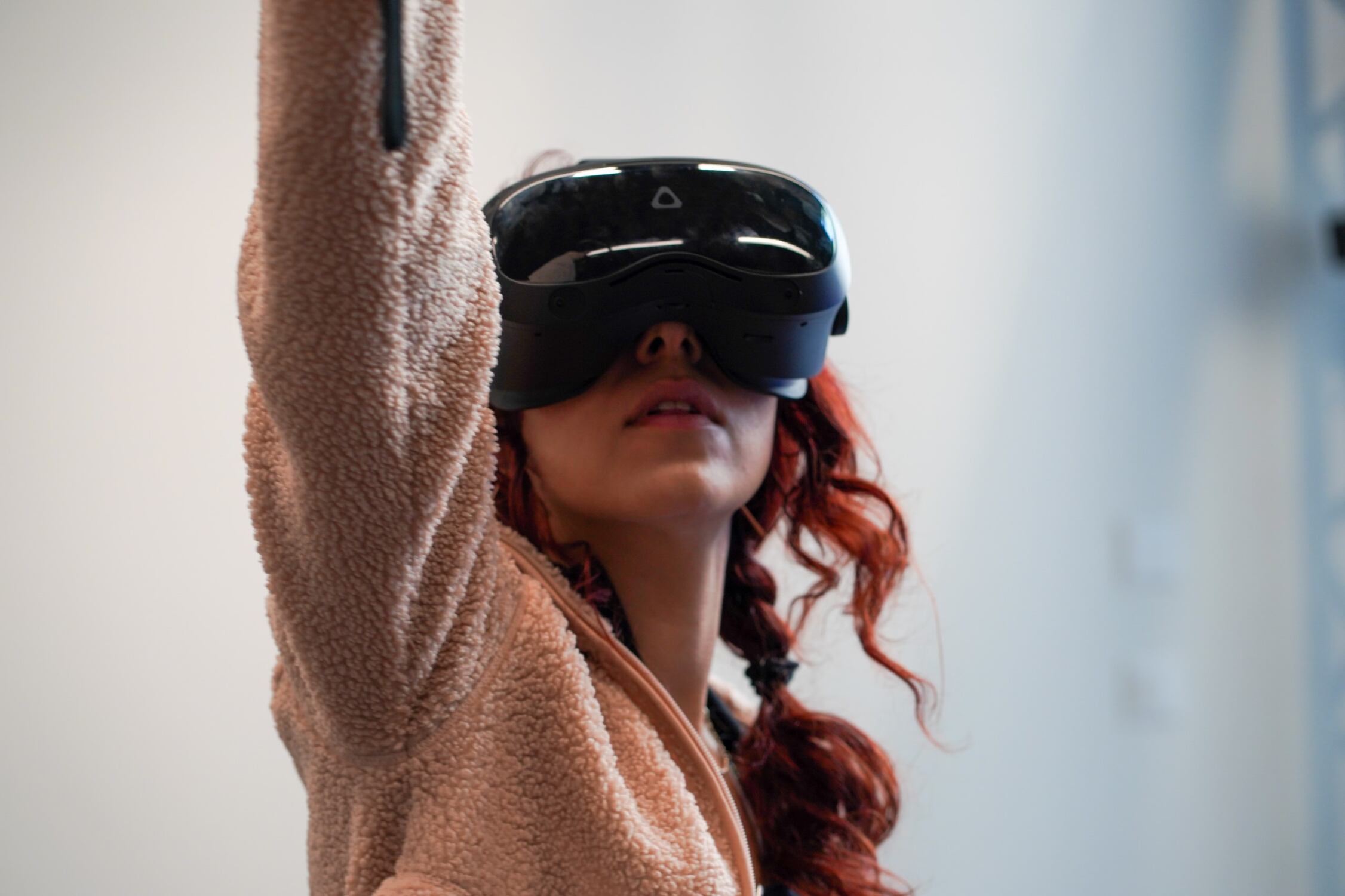
Nathaly, who did you have in mind when you created the new BSc program in immersive Technologies?
This program is for people with an affinity for technology, for playful people who enjoy experimenting and are interested in innovative and interactive human-machine interfaces. Immersive technologies are not just any old tech – they’re different. We blend the physical world with digitally enhanced or simulated reality. This requires creativity and the ability to think outside the box.
Generations Z and Alpha are very keen to discover and experiment. […] Our degree program offers precisely this opportunity.
The program is anyone interested in exploring and actively shaping unknown territory. In immersive technologies, the transfer of information and storytelling are not confined to little squares in the shape of screens or sheets of paper: they unfold in three-dimensional space itself. Mastering it requires considerable skill. Having said that, developing one’s own visions and solutions is also great fun and rewarding, which makes the program ideal for Gen Z.
What makes it so interesting to Gen Z?
Gen Z and Alpha are known to have a knack for discovering new things and experimentation. They grew up in a world replete with information from all kinds of sources and they thrive in learning environments where they can solve problems and truly test their knowledge. They want to proactively develop solutions and find their own way. Our degree program is the perfect place to do these things.
Decoding the jargon: AR, VR, MR, XR, Serious Games
AR is short for “Augmented Reality”: AR technologies allow users to enhance their perception of reality by superimposing the real world with virtual information and objects. People with hearing impairments, for instance, can use AR goggles that display the spoken word in writing during a theater performance.
VR is short for “Virtual Reality”. In VR, users immerse themselves in a fully digital environment. The technology has evolved rapidly in recent ears. It is no longer only used by the gaming and entertainment industries, but also in sectors as diverse as mechanical engineering, health care, and architecture. In a VR environment, participants can, for example, practice hand movements in a safe and efficient way. Or design teams can facilitate the virtual, but real-seeming, experience of a new product.
MR is short for “Mixed Reality”. It is used in various ways. From a scientific perspective, MR encompasses the entire spectrum between the physical world we inhabit and a completely virtual reality. MR often also denotes a reality at the intersection of virtual and augmented reality. In this interpretation, reality is also superimposed with virtual elements, with the exception that these elements are designed to fully blend in with the real world. One notable example is Microsoft’s HoloLens.
Overall, the industry is moving away from considering and discussing AR, MR and VR as distinct concepts. They are increasingly seen as different dots on a spectrum. This led to the introduction of new acronyms like “XR”. As a variable, “x” signifies the full range of the spectrum. Other neologisms include “eXtended Reality”, “Enhanced Reality”, “X-Reality”, “Expanded Reality” and “Cross Reality”.
Serious Games are games that are not just fun to play, but also educational. They are also used to train skills or to evoke empathy. For instance, the HSLU’s Immersive Realities Research Lab has developed a narrative game for the well-known set of sex education resources entitled “Herzfroh 2.0”.
What made you develop this program?
Immersive applications are used in a wide range of sectors including engineering, medicine, entertainment, architecture, and design. This new BSc in Immersive Technologies is a direct response to the growing demand of specialists in the field. The new degree program will be launched in fall 2024. It will give students the tools to design and develop convincing immersive applications for various sectors.
You refer to immersive technologies as a “different kind” of tech. What do you mean by that? What kinds of skills are required?
Immersive technologies create multi-sensual experiences, and they’re user-centered. Psychological aspects play a major role. Our goal is for people to immerse themselves in digitally enhanced or virtual realities that feel “real”. To achieve this, we operate within the intersection between humans and machines.
Immersive technologies create multi-sensual experiences, and they’re user-centered. Psychological aspects play a major role.
After all, immersive technologies are interdisciplinary in nature: various types of expertise need to mesh and interlock. That’s why the program content is so varied, too. While building the necessary technical skills such as e.g., object-oriented programming, game development and 3D modeling, the students also develop a foundational understanding of adjacent thematic areas from human-computer interaction design to immersive storytelling to agile project management.
Will it make a difference for female students to see a woman heading the program?
I hope it will encourage prospective female students, not least because I don’t have a background in IT myself, even though I have been working in the field for many years now. From my own long-term experience as a head of program in continuing and executive education, I know that having a woman at the helm has a positive effect on female participants. They appreciate it when a woman’s perspective has helped to shape the program.
The tech sector continues to be mostly male dominated. Will the new program contribute to changing that?
I would be thrilled if it did! Overall—and this is interesting—the share of women in the immersive tech sector is significant. The team at the HSLU’s Immersive Realities Center also has a strong female presence. Maybe it’s how technology, psychology and design intersect in this field. This interdisciplinary interplay of aspects seems to be appealing to women.
“Learning by doing” is a key principle of the new program. How does that work in practice?
People always learn most by working on real-life projects. The BSc program’s practice and project-oriented structure was designed to reflect this. Theory and practice are combined. In a step-by-step process, the students develop their implementation and interdisciplinary skills and consolidate them in various projects.
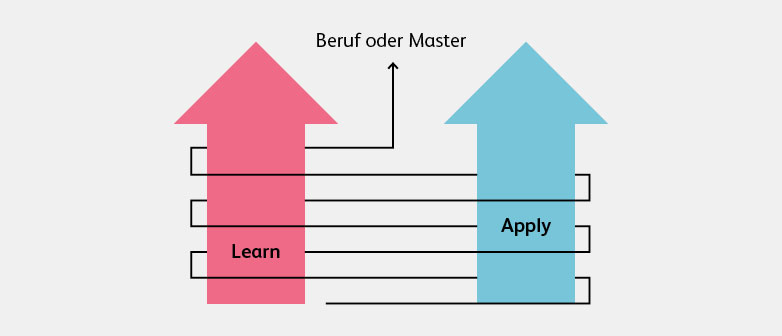
The projects have an increasing level of complexity: from simpler initial tasks we move on to work on real-life projects commissioned by practice partners in the more advanced semesters. Immersive technologies are used in various sectors. It’s important for us that the students learn to adapt to ever-changing circumstances and to develop solutions based on what they’re confronted with.
And what are the graduates’ career prospects?
Immersive tech is growing rapidly. That means the demand for qualified specialists is also growing steadily. Our graduates go on to work in corporate innovation divisions, creative agencies, research labs and many other fields. Their jobs range from AR/VR/games designer and developer to human computer interaction designer, product manager, 3D artist/modeler to technology adviser and start-up founder.
Immersive applications are used in virtually all industries. With the new BSc Immersive Technologies, we are responding to the growing demand for specialists.
Are there any sectors that rely on immersive technologies more than others?
Most of them do, be it architecture and design, education/training, the medical and healthcare sector, industry, or rail transport. Train drivers, firefighters and security personnel train responding to dangerous situations in simulations. Virtual reality is a popular planning tool for buildings, factories and labs. The police use them to recreate crime scenes so they can verify eyewitness accounts. Companies use digitally enhanced reality to train employees for new production processes or to visualize 3D CAAD data as holograms instead of building expensive prototypes. Serious Games are used, for instance, to treat phobias or patients with cystic fibrosis.
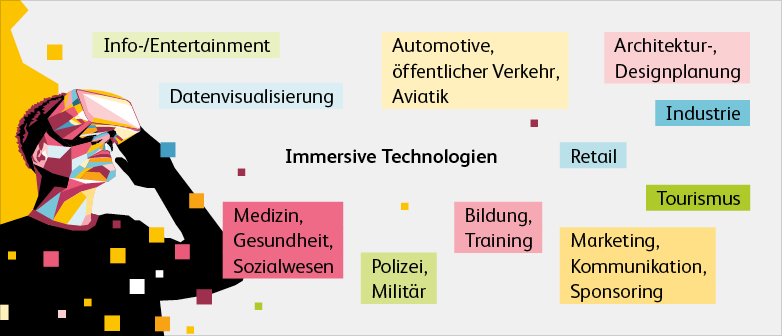
Where do you think immersive technologies are heading? What is their future influence?
This development is far from complete, things are constantly progressing. Big companies like Apple, Meta and Google are currently investing billions in this sector. This tells us something about the significance they ascribe to these technologies in the long-term. This is only just the beginning. It’s not unlike the internet, or smartphones. When they first appeared, nobody was able to predict where the journey was going to go. Now, they are an integral part of our personal and professional everyday lives. A world without them is inconceivable.
Key facts about the BSc in Immersive Technologies
Application deadline for the 2024 fall semester
Thursday, 15 August 2024 | We recommend you sign up as early as possible
Requirements:
- Apprenticeship with a vocational baccalaureate: Prospective students without a non-tech degree/education may be required to take preparatory courses in math and/or information technology (at the discretion of the head of degree program).
- Good English language skills: Level B2 or higher
- Affinity for explorative and experimental work: Willingness to learn proactively, to try things out, and to shape them.
Benefits:
- Learning by doing: practical and project-based degree program
- Attractive career prospects: at home or abroad
- English-taught program: preparation for a work environment where English is often the corporate language
- Cooperations and network: Students benefit from the extensive network cultivated by the Immersive Realities Center, be it through interesting project modules, the involvement of highly qualified guest lecturers or through varied networking opportunities throughout the program.
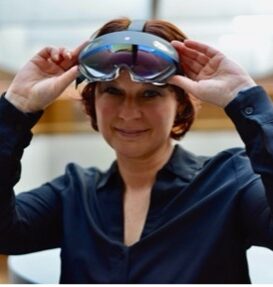
Nathaly Tschanz
She loves breaking new ground:
Nathaly Tschanz is the head of the new BSc in Immersive Technologies program and the head of a range of continuing and executive education programs (CAS in Virtual and Augmented Reality Management, CAS Digital Twins creating business value, Metaverse specialist course). She fell in love with immersive technologies many years ago and forged her path to becoming a reality designer with determination and a visionary mindset. Learn more about her career on her website.
Immersive Technologies at the Lucerne University of Applied Sciences and Arts
With this degree program, the School of Computer Science and Information Technology is expanding its broad range of offerings in the field of immersive technologies. The related skills are pooled in the “Immersive Realities Center”. It covers the areas of mandated activity of research, services, and continuing and executive education while acting as a networking hub. It also boasts a showroom for interested SMEs and vocational colleges. Learn more: hslu.ch/immersive-realities-center
Visit our IT Blog: Keep up to date with tips and news from the world of IT. We highlight key people and write about technology that forms the core of our department. Sign up for regular news and keep informed.
Published: 1 December 2023
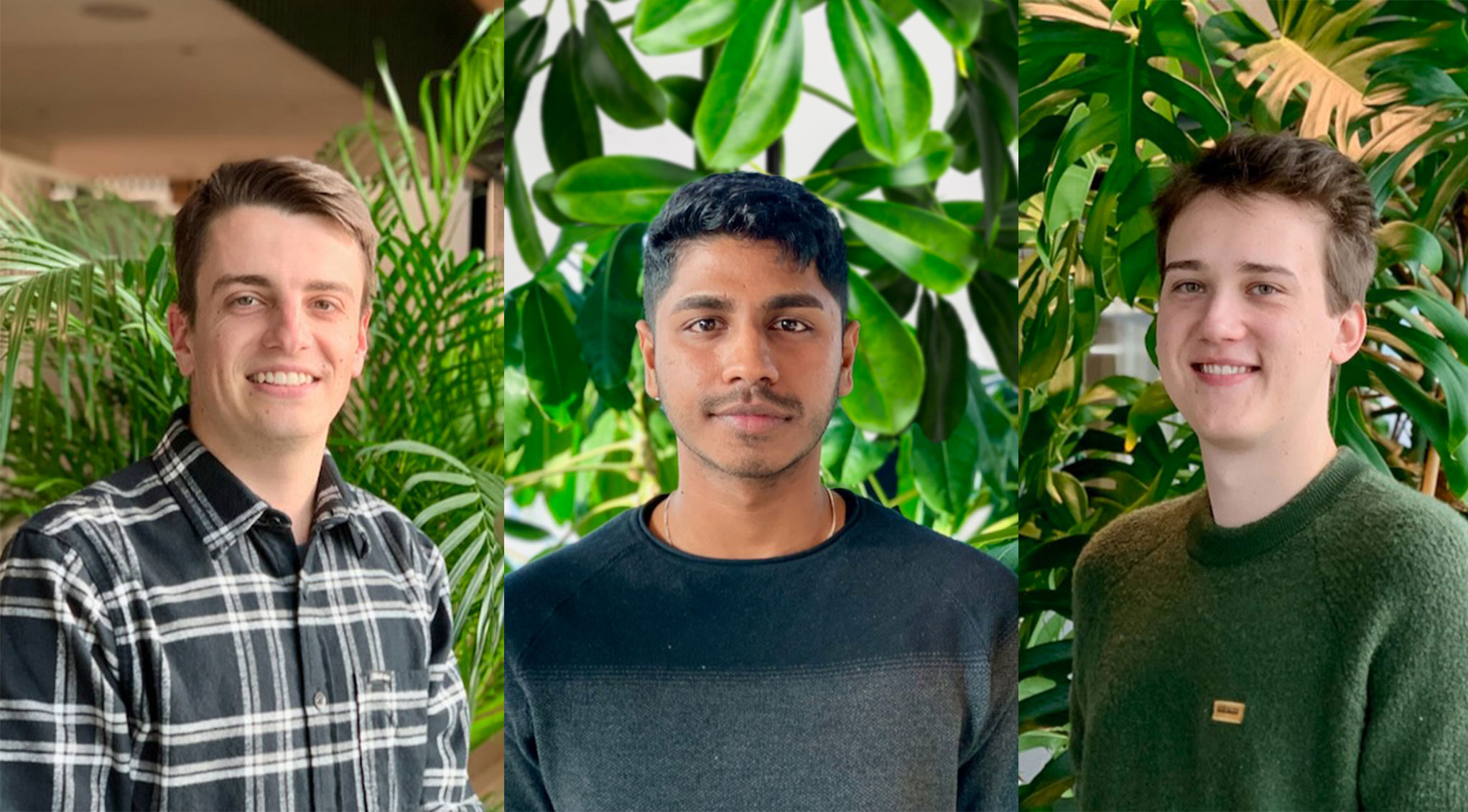

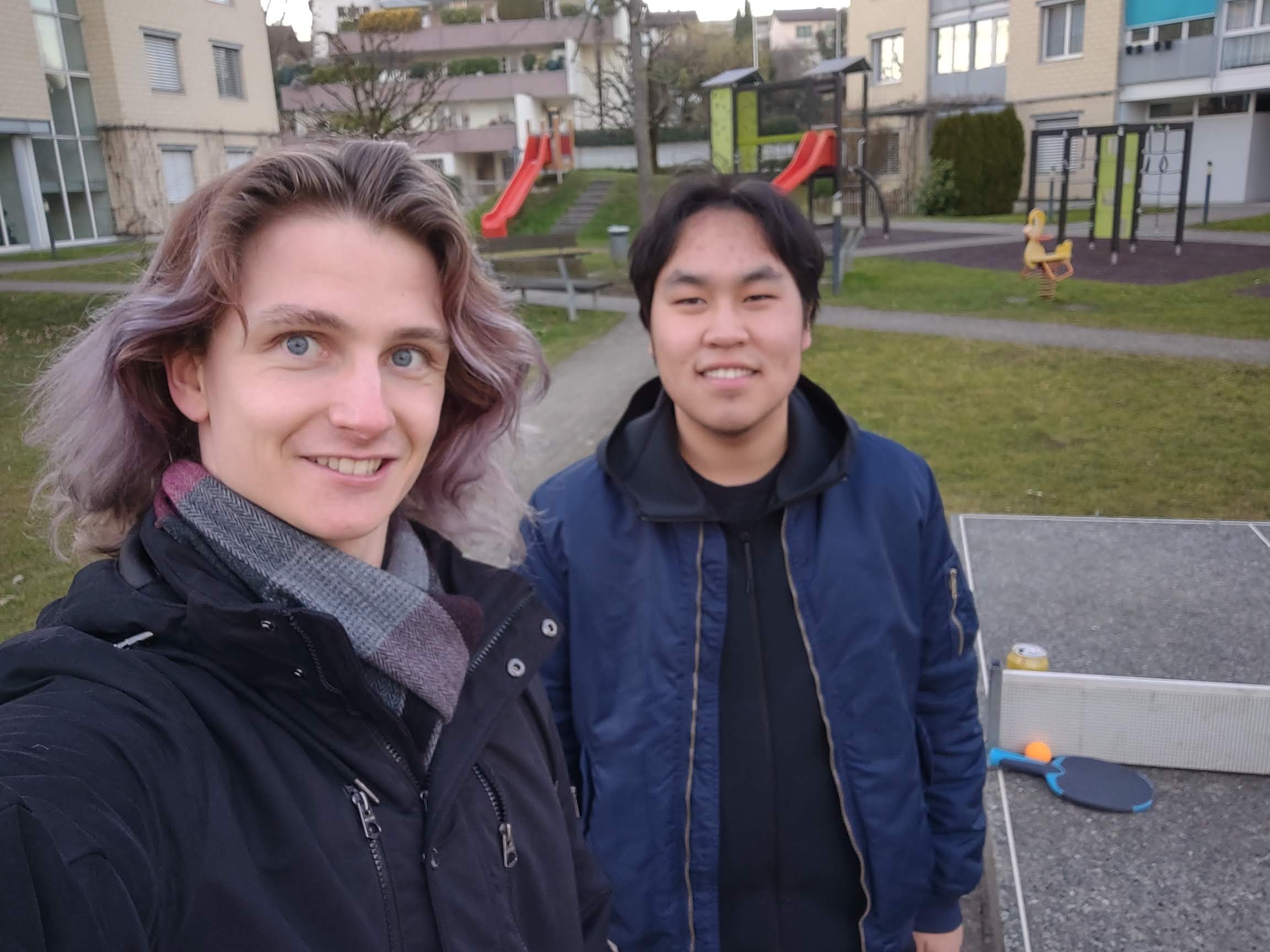
Kommentare
0 Kommentare
Danke für Ihren Kommentar, wir prüfen dies gerne.